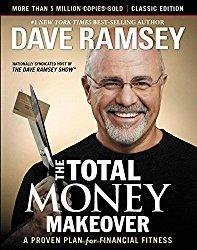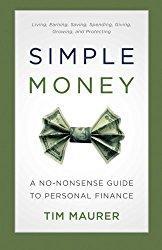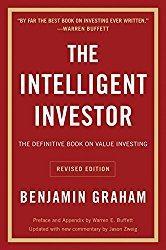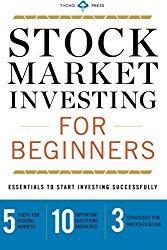There was an article in Money magazine this month where five market prognosticators are talking about a coming crash. One expects a drop of 50%. Another says that it will be the biggest crash in his lifetime.
Let me first say that while it is fun to try to predict where the markets will go next, most of the time it is really anyone's guess. If you say that the markets will drop and you keep saying it long enough, eventually you'll be right. If the market is dropping and you say that there will be a recovery for long enough, eventually you will be right. The issue is getting the timing right, which is something no one can do consistently. If people knew that shares were going to drop next week, they would sell this week, so the market would drop this week instead. When you know, you're too late. Remember that everything is already priced into the market, including the likelihood of a crash or a rally on the horizon.







That said, because it is fun to prognosticate, let me say that perhaps the doom and gloom chorus in the Money article are wrong. They are correct that share prices are high compared to historic levels. Price earning ratios are normally around 15 to 17, but today they're in the low to mid 20's. This means stocks are 150% as expensive today as they normally are based on earnings.
But when PE ratios are high, there is two ways for them to correct back to normal: Prices can fall, as the Money magazine interviewees suggest, or earnings can rise. I think there is a good possibility that the latter may happen. If they do, then the higher prices we're seeing today will be justified.






Shop the latest clothing and accessories

The reason I make this assertion is that we're seeing some factors that would tend to drive earnings higher. If President Trump and the Republicans are able to cut taxes, that would lead to more investment and more spending as more people get back to work and see their paychecks rise. More importantly, if Obamacare is actually repealed, the restrictions that are keeping employers from hiring people full time will disappear, leading to more productivity through full employment, more cash in people's pockets, and thereby higher earnings. The markets rallied immediately after Trump's election because of expectations of these outcomes.
Then again, if tax cuts are not passed, or if repeal of Obamacare does not occur, or an event that shakes the economy such as an impeachment of the President occurs, stock prices could reverse. That is why it is so difficult to make predictions.










Shop for camping and hiking supplies

So what should you do? The same thing you should always do. If you are young and building wealth, you should be investing regularly. If the markets drop, you'll be able to pick up shares at lower prices and you have plenty of time to wait for a recovery. Recoveries also tend to be very fast, returning shares to their previous levels within a year or two, unless the government interferes like it did in the 1930's.
If you're nearing retirement, you should be pulling the money you'll need during the first few years out of the market. You should also be shifting money to income investments like bonds to provide a hedge against a stock market collapse. If you're going to be living on your portfolio, you don't have the time needed to wait for a recovery. If you have a lot more than you'll need for living expenses, like you have $10 M but only need $2 M to generate enough income for living expenses, you can afford to keep a lot of the excess invested in equities since you would still be fine financially if the markets did drop 50%.
It is fun to try to predict where the markets will go, but your investing strategies should be consistent and be based on the idea that you really don't know where markets will go. You need to determine your tolerance for risk, and look at the likely and fairly possible moves that could happen in the markets, and allocate your investments accordingly.
Follow me on Twitter to get news about new articles and find out what I'm investing in. @SmallIvy_SI


Disclaimer: This blog is not meant to give financial planning or tax advice. It gives general information on investment strategy, picking stocks, and generally managing money to build wealth. It is not a solicitation to buy or sell stocks or any security. Financial planning advice should be sought from a certified financial planner, which the author is not. Tax advice should be sought from a CPA. All investments involve risk and the reader as urged to consider risks carefully and seek the advice of experts if needed before investing.
